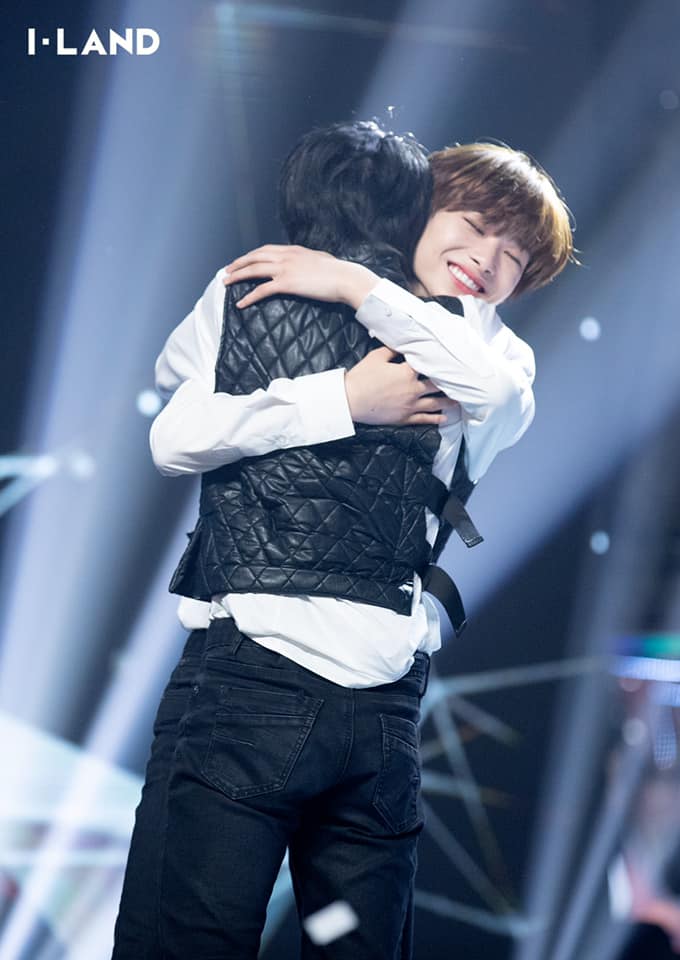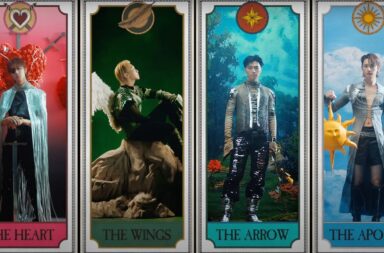
With the broadcast of last Friday’s live finale of Mnet’s I-Land, Big Hit Entertainment’s next boy group after BTS and TXT has officially debuted. Technically under a Big Hit subsidiary, a joint venture with CJ E&M called Belift Lab, Enhypen is a seven-member group formed from a pool of over twenty trainees, whittled down through numerous singing and dancing challenges over the show’s three-month run. At its peak, over 400,000 viewers were tuning in to the show’s live YouTube broadcasts, which were also the first of their kind for Korean idol survival TV.
We previously covered the show’s lacklustre first half, which, while interesting, suffered from overdramatic editing and cruel game rules that were designed to turn contestants against each other, making for tense and uncomfortable watching. While the show’s second half still contained similar moments, the overall atmosphere of the show improved dramatically after the initial two-faction setup (where trainees were split into superior I-Landers and inferior Grounders) came to an end, with the elimination of almost half of the trainees in Episode 6.
In addition, the sudden reduction in the number of faces to memorize made it much easier for the audience to pick a favorite, especially as the average skill level rose significantly. Performances went from amateurish, with heavily processed vocals and messy camerawork, to decent or even good, with clearer live vocals, sharper dancing and generally more professional-looking stages.

Finally, the friendships between the contestants seemed to strengthen visibly over the course of the second half, with them having lived and trained together 24/7 for almost three months while jointly facing challenge after challenge. Their more relaxed state meant that audiences could also relax, making the show much more enjoyable to watch and creating more opportunities to become emotionally invested in likable characters.
As a result of the above, I-Land’s second half vastly improved on the first, leaving a decent number of highlights that are worth rewatching. In terms of stages, the most memorable is probably “Flicker”, an original song performed by trainees Heeseung, K, Jungwon, Jake and Sunghoon. Apart from being one of the best original songs in the series, this stage benefited from a strong line-up of skilled trainees, each with decent vocals, dancing and stage charisma. Intricate choreography and a smooth, mostly one-take style of camerawork helped this stage to make its mark on the series, as well as on its’ trainees’ fates.
As well as improved performances, guest appearances by members of Seventeen (who are now under Big Hit Labels) and BTS were also highlights, if only because they injected some much-needed humour and light-heartedness into what is otherwise quite a dense and emotionally heavy show (as is often the case given the make-or-break nature of trainees’ debuts).
Limited for most of the show to performing only BTS or original songs, Seventeen’s casual 24-hour challenge to learn some of their choreography provided a fun moment of respite and a much-needed break from hearing only BTS(-style) songs for the audience. Refreshingly, Hoshi, Jun, The8 and Dino cheered on contestants with infinitely more enthusiasm and encouragement than any of the mentors had throughout the show, and were a good reminder that — despite what the show emphasized — most idols are, at the end of the day, nice people.
Similarly, BTS made a long-awaited visit to the dark and gloomy I-Land complex while the trainees were absent, and within seconds of appearing onscreen as the imposing silhouettes of global stars, were back to their usual selves, ooh-ing and ahh-ing like tourists, accidentally breaking things while nosing around and looting non-perishable goods from the kitchen.
As a bonus, BTS’ interview during the finale where they collectively mind-blanked on live TV was one of the few moments in the entire series that gave me a good belly laugh. As someone who has watched a lot of these idol survival show live finales, theirs will go down in history as one of the most awkward yet hilarious speeches ever, meant to inspire the wide-eyed, nervous trainees in front of them, but more effectively revealing themselves as the goofballs they are in front of the entire nation (RM‘s facepalm at 1:18 says it all).
With the snowballing momentum behind the series, created by its industry muscle and strong slant towards global audiences, Mnet has scraped together a decent success for its summer offering – enough, it seems, to justify a girl group version that looks to be in the works for next year. Having tested the waters with this new format, Mnet may also look to broaden their horizons further generally, engaging global audiences more actively and innovating ever-more intense methods of competition for the never-ending stream of wannabe idols.
Meanwhile, with an undeniably successful launch, Enhypen looks poised to become one of the next big groups in the upcoming generation, meaning that I-Land has been as much a success for Big Hit as it has for Mnet. Where their initial momentum will take them remains unknown, but for a rookie group in 2020, it’s as good a start as any.
(YouTube [1]. Images via Mnet.)


